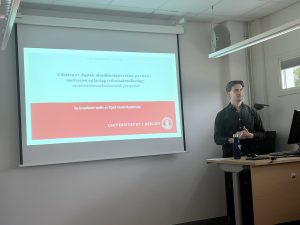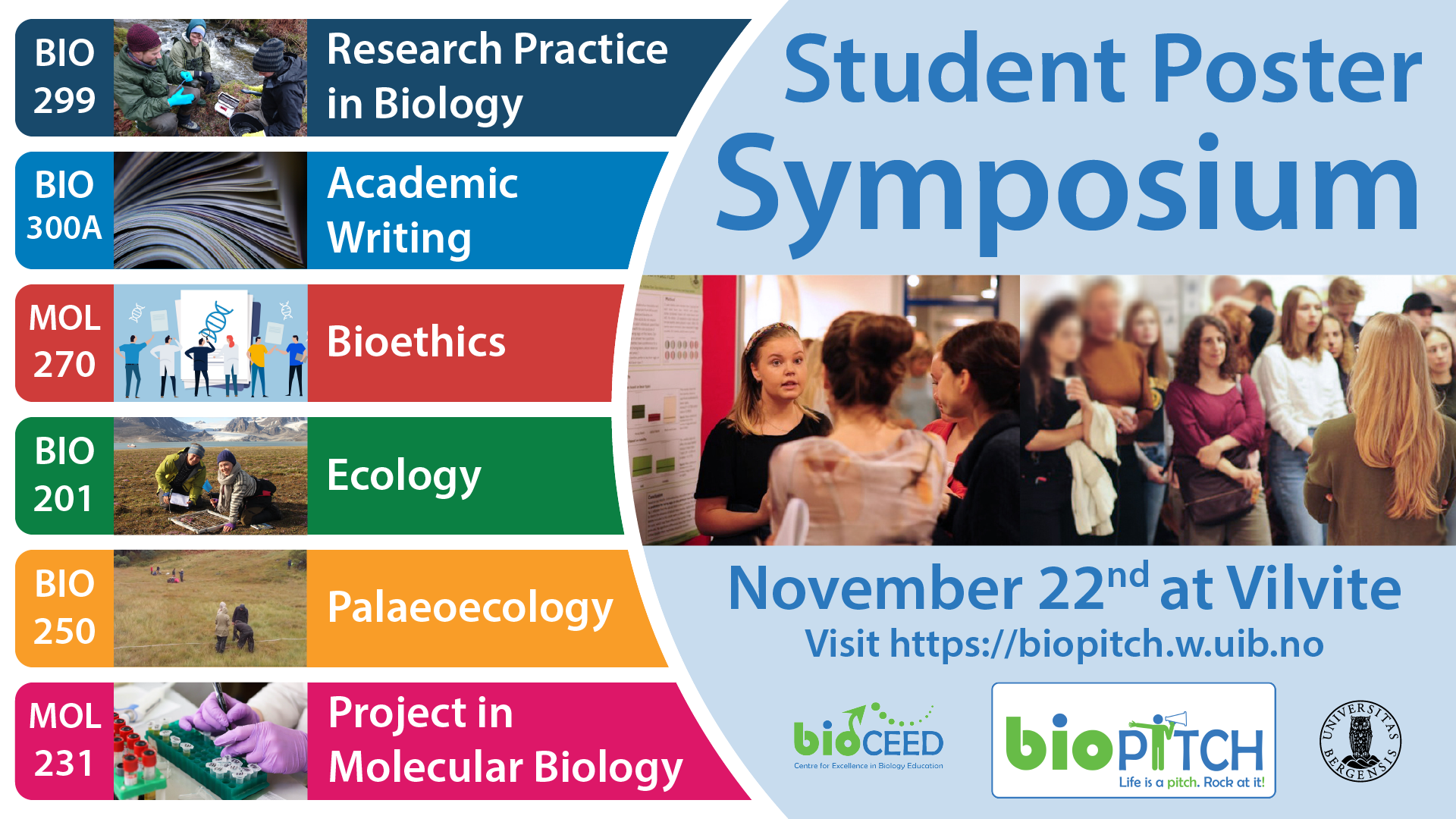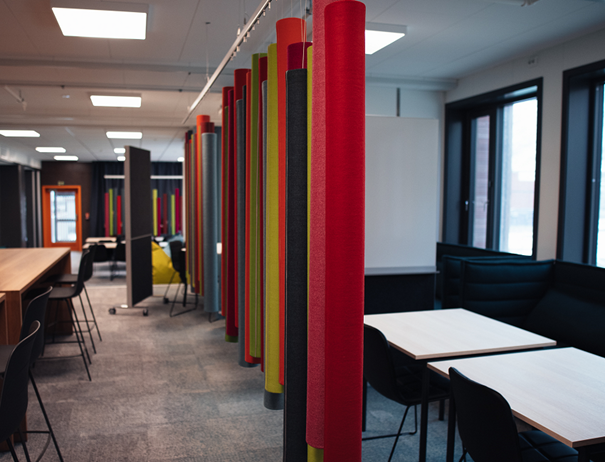Kjetil Rundereim successfully defended his Master thesis in the ArtsApp project

Kjetil Rundereim defended his Master of Science thesis successfully in June, 2022. Credits: Lucas Jeno.
Kjetil Rundereim defended his Master of Science thesis successfully in June, 2022. His master thesis entitled “Effekten av digitale identifiseringsverktøy på videregående elevers motivasjon og læring ved artsidentifisering: Et selvbestemmelsesteoretisk perspektiv» was part of the ArtsApp project. Kjetil, along with the supervisors Lucas Jeno and John-Arvid Grytnes, are working on submitting the results of the Msc thesis to a scientific journal for publishing.
The MSc thesis can be read online here.
Abstract
Species identification is useful in promoting knowledge about species, which in turn has positive consequences for understanding ecological contexts. Ecological knowledge covers large parts of the learning objectives in science and biology in upper secondary school. The purpose of this study was to compare the use of two different identification tools among students to examine how technology affects their perceived competence, autonomy, intrinsic motivation, effort, internalization and learning in the face of species identification of different algae species. By using an experimental design, 86 students from three different schools participated in this quantitative study, where the candidates were randomly assigned to either the experimental condition (ArtsApp) or the control condition (Artsorakel). Both apps deals in species identification, but are distinguished by the fact that one app is a machine-trained image recognizer (Artsorakel) and the other an interactive species key (ArtsApp). Several different theoretical frameworks highlight motivation as an essential component for student’s ability to perform in school. In this study, the Self-Determination Theory (SDT) was applied as a theoretical framework. The theory is centered around human’s innate basic psychological needs and which social-contextual factors that influence an individual’s motivation. Based on the theory’s fundamental assumptions, three hypotheses were developed to test the effect of the apps. A correlation analysis was performed to test the relationship between the variables in the study. It was hypothesized that all the variables in the study would correlate positively with each other. Furthermore, several independent t-tests were performed to determine if there were statistically significant differences between the student’s mean values for the various variables. It was hypothesized that the candidates who were assigned to ArtsApp would experience a higher degree of competence, autonomy, intrinsic motivation, effort, and internalization compared to the control group assigned to Artsorakel. Furthermore, it was hypothesized that the students assigned to Artsorakel would have higher achievement scores on the species identification test due to the app’s user-friendly interface.
The results showed partial support for the hypotheses. As postulated in SDT, all the variables correlated positively with each other. There was only one significant finding made for the student’s average values, which showed that the students who used ArtsApp had higher achievement scores on the species identification test with a medium to large effect, compared to the students who used Artsorakel. However, no significant differences were found between the apps for the need satisfaction of the variables.



